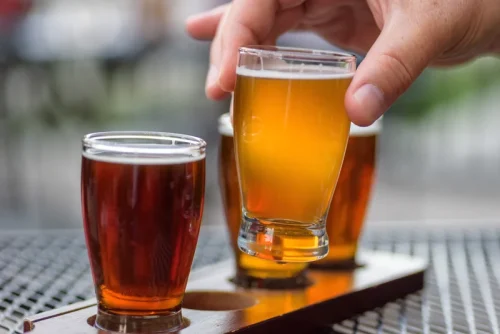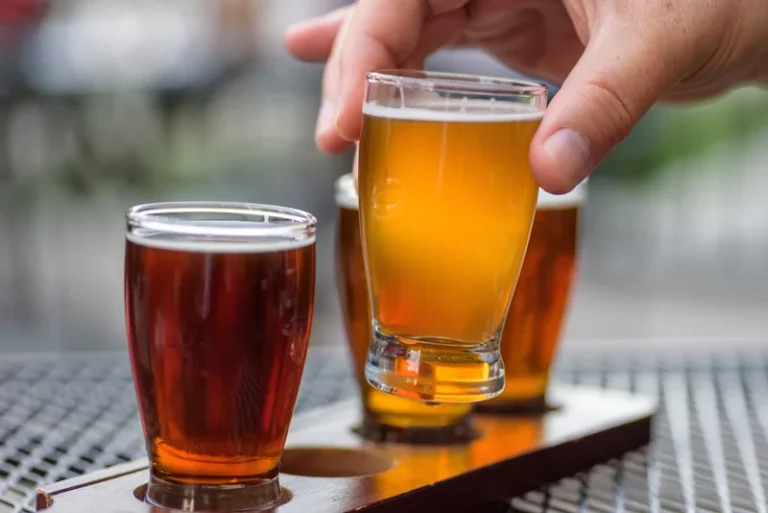Alcohol withdrawal Symptoms, diagnosis and treatment
Family therapy ensures that all involved are on the same page regarding the path to recovery. Therapeutic interventions on both an individual and group level can greatly improve the journey to recovery, equipping individuals with coping mechanisms and offering =https://ecosoberhouse.com/ much-needed emotional support. These therapeutic encounters are crucial in tackling the psychological elements involved in recuperating from alcohol use disorder. However, this figure is much higher if an individual does not receive medical care.
Contents
Election Anxiety: 61% Say Presidential Election’s Impact On Mental Health Is Negative
Urgent medical care is imperative for those suffering from hallucinations or seizures as a result of withdrawing from alcohol. Immediate action should be taken by either visiting the nearest emergency room or contacting 911 if such symptoms manifest. Alcohol withdrawal symptoms happen when a person stops drinking alcohol after frequent or heavy use. The symptoms can range in severity and may include nausea, vomiting, and mood changes.
Effects of Alcohol, Binge Drinking & Withdrawal Symptoms Your Room
This is typically the drug class of choice for alcohol withdrawal, as long-acting benzodiazepines may reduce the chance of recurrent withdrawal symptoms or seizures. Within six hours of your last drink, mild symptoms of alcohol withdrawal may begin to appear. If you notice your symptoms do not progress or get worse within 24–48 hours, you will likely recover from drug addiction withdrawal without risk. However, depending on the amount of alcohol typically consumed and the duration of alcohol use, the timeline of symptoms may vary. Alcohol withdrawal syndrome (AWS) is a term that medical professionals use to describe the set of symptoms a person with an alcohol use disorder typically experiences when they stop using alcohol. For most people with alcohol withdrawal, symptoms tend to be mild and include anxiety, restlessness, headaches, and a craving for alcohol.
Alcohol Withdrawal Timeline
This is a serious medical issue that can have permanent consequences, such as brain damage and an increased risk of cancer and cardiovascular disease. If a dependent person stops taking cannabis, they may experience withdrawal symptoms. Find out the facts, including short and long term side effects, common withdrawal symptoms and more. You can also get medicines to help you manage and reduce nicotine dependence.
- Learn more here about the development and quality assurance of healthdirect content.
- For most people, alcohol withdrawal symptoms will begin sometime in the first eight hours after their final drink.
- The presence of a nurturing support system consisting of family members and friends is equally critical during the recovery journey.
- Such complex biochemical dynamics underscore the challenges faced while trying to manage symptoms arising from discontinuation or reduction of alcohol intake.
The alcohol withdrawal timeline varies, but the worst of the symptoms typically wear off after 72 hours. People who are daily or heavy drinkers may need medical support to quit. Stopping drinking abruptly can lead to seizures and can even be fatal. Most people with mild to moderate alcohol withdrawal don’t need treatment in a hospital. But severe or complicated alcohol withdrawal can result in lengthy hospital stays and even time in the intensive care unit (ICU).
- During the progression of withdrawal, one may begin to experience more pronounced symptoms such as a rise in blood pressure, profuse sweating, and disorientation.
- They might recommend chlordiazepoxide (Librium), which can also help alleviate symptoms of anxiety.
- Dr. Spann owns private practice You in Mind Psychotherapy and Consultation, which focuses on providing culturally responsive therapy, and he assists many therapists of color in receiving their independent licenses.
- Family therapy ensures that all involved are on the same page regarding the path to recovery.
These mild symptoms act as preliminary signals that the body is adjusting to not having alcohol in its system. For unplanned alcohol withdrawal symptoms, seek immediate medical attention to prevent the onset of more serious health problems. More moderate to severe symptoms, which usually appear during peak withdrawal time of 24–72 hours after your last drink, may also include hallucinations and seizures. Someone with an AUD is likely physically dependent on the substance. This means that the brain and central nervous system have gotten used to the constant presence of alcohol in the body.
Alcohol withdrawal symptoms typically develop within several hours to a few days of quitting and usually worsen after 48 to 72 hours. Some symptoms — such as insomnia, mild anxiety and tremors — can occur while the individual still has a measurable blood alcohol level, but most occur after alcohol has left the system. Depending on the severity of the level of alcoholism, withdrawal symptoms generally last from several days to several weeks to, in rare cases, months. The utilization of medications within the context of inpatient detoxification aids significantly in the management of withdrawal symptoms from alcohol. The alcohol withdrawal syndrome symptoms on-site availability of healthcare experts guarantees immediate intervention for any arising issues, thus enhancing the safety and regulation during the detox process. Factors such as personal body chemistry, how much and how often one drinks alcohol, along with other existing health issues, play roles in determining both intensity and length of these symptoms during withdrawal.
Sober living -




